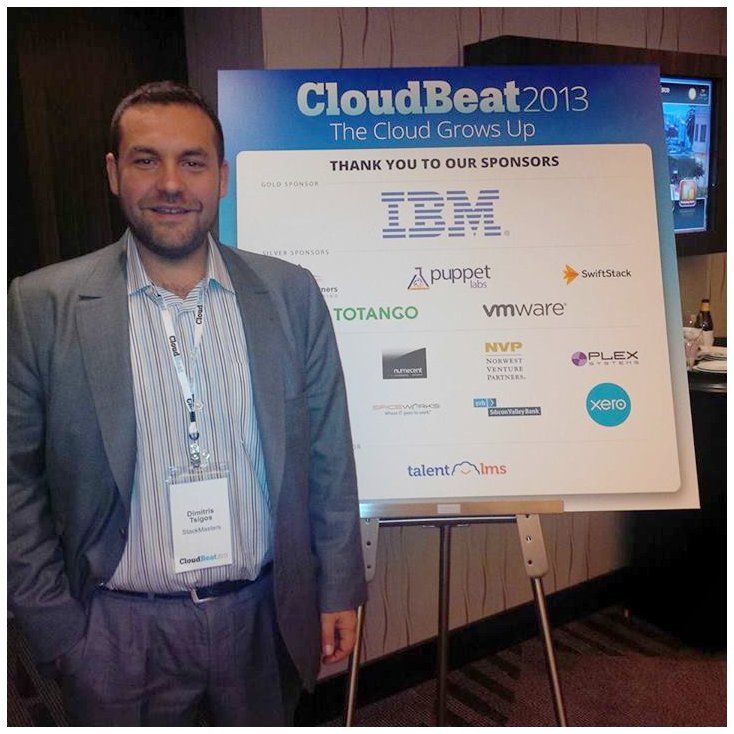Starting up the hard way
thoughts on the European and Silicon Valley startup scenes
There’s a scene in the “Muppet Movie” (1979), where Gonzo shares his dream of going to Mumbai to become a movie star. When told by Fozzie that “You don’t go to Mumbai to become a movie star! You go where we’re going: Hollywood!“, he retorts: “Sure, if you want to do it the easy way“.
It’s a notion all European entrepreneurs will understand ― only our Hollywood is called Silicon Valley, and our Mumbai bares names such as London, Berlin, Paris or Athens. Still, just like Gonzo, we insist of doing it the hard way.
As a serial entrepreneur based in Athens and serving as the president of the European Confederation of Young Entrepreneurs, I understand “doing it the hard way” all too well. Trying to build up a startup outside the Valley, its investment climate and the opportunities it offers often feels like swimming against the tide. As a mentor from the USA once told me, “You work double for achieving half, because of the numerous barriers and obstacles, and that’s quite amazing”.
Indeed, amazing is exactly how it feels today, on my first trip to the States, invited at the CloudBeat 2013 conference by VentureBeat to discuss how “Learning Gets Cloud Powered“, as the founder of Epignosis, the parent company of the TalentLMS eLearning platform.
Even after 13 years in the trenches we call the European startup business, getting to share the stage with well known industry figures and representatives of companies that pioneered cloud computing, feels like some kind of validation, nay, it is a kind of validation. That said, I wouldn’t exchange the “hard way” of the European startup scene for some mythical Silicon Valley El Dorado.

Proud to be one of the CloudBeat supporters among
companies like IBM, vmware, puppet and xero.com
While I respect the legacy of the Valley, and cannot help but feel a little jealous of the opportunities it offers, my vision, as an European entrepreneur and as a representative of thousands of young European entrepreneurs is neither about taking my business to the Valley nor about recreating the Silicon Valley ecosystem in Europe (if that, was indeed possible. Paul Graham, convincingly, claims otherwise).
My vision is of a European innovation ecosystem that is a peer to the Silicon Valley startup scene, but does not try to mimic it, drawing instead from the unique perspectives, cultures and opportunities the so called “old” (but still kicking it) continent has to offer. A few important steps in this direction have already been made in London and Berlin, but without yet establishing an authentic European start-up growth model.
I came to believe that what we need is a growth ecosystem that will invest in long term businesses (instead of quick cash-outs) and real innovation (instead of the nth social-something service or mobile app). An ecosystem, in other words, that will focus on sustainability in terms of financing, in terms of expectations and in terms of long term focus. Not merely to make a virtue out of necessity (since “overnight successes” can take many years of hard work over here), but also in order to invest in overall growth and job creation, and enhance the European quality of life.
Valley companies always say that they want to “change the world” (even if, a lot of them, are merely after a quick cash-out for yet another boring social app idea). I believe that European startup companies are better positioned, if not to “change the world”, then surely to improve their communities and push the european project forward. And it’s our perceived deficiencies, that is the very lack of easy access to investment capital and the absence of a get-rich-quick startup mentality that makes this true.
A european entrepreneur has to fight bureaucracy and adverse market conditions unimaginable by a Valley entrepreneur. He is, therefore, more likely to attempt to fix things and influence policy for the better. It’s not that he is more altruistic than his States-wise counterpart; it’s just that he cannot afford to operate isolated into his own (business) bubble.
For similar reasons, he cannot bet on a quick cash-out because those are few and far between here. Plus, the low hanging, social-cum-mobile startup idea market is already taken by the Valley companies, which have the connections and the money to burn. So our european startup founder has to focus on building a sustainable, long term business. A business that will not burn through capital without first having a solid monetization strategy, and which will not disappear overnight in some profitable “acquihire”.
In some ways, most European startup efforts are more alike the so called “lifestyle businesses” than the fast-paced and aggressive Silicon Valley startups. This makes it almost impossible to build the next Tumblr or Instagram. But it also makes obvious in hindsight failures, from the numerous casualties of the dot-com bubble bust to Color’s $40 million nosedive near impossible too.
But all this, which is part personal opinion, part conclusions reached after 13 years in the trenches, warrants its own discussion, which I promise for another post. As for today, I feel happy and validated to roam around the Valley for the first time, meeting interesting and hard-working entrepreneurs and observing how the big boys (and girls) work.
I also feel vindicated for another reason. A few weeks back, I was informed that one of the companies I co-founded, AbZorba Games, topped the USA Apple Store in “social casino” games, and hit #4 in card games. Now, I am told that we also broke the 2 million downloads threshold, with the majority of them in the US. For our Athens-based team, it’s a small victory of huge importance. See, we might not have access to the opportunities afforded in the Valley, but we sure can put on a decent fight (cue Rocky soundtrack).
After all, where’s the fun in doing it “the easy way”?
Dimitris Tsingos
